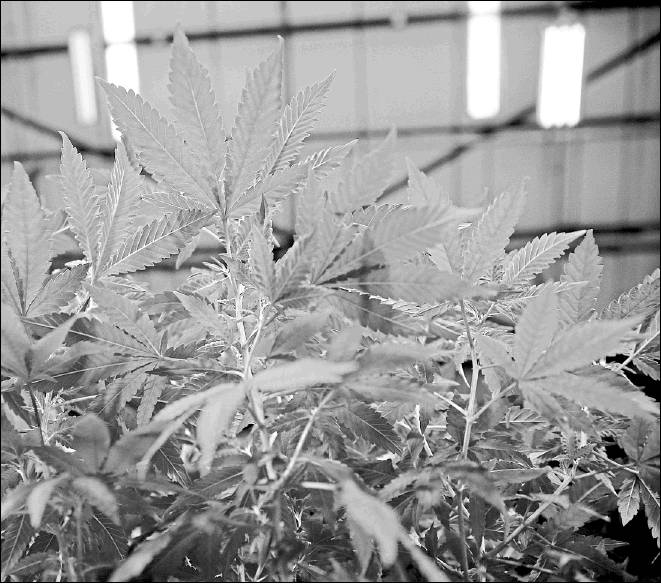Legalizing pot fraught with ills
By Alex Berenson
Marijuana is on the march. New Jersey and New York are poised to legalize the drug for recreational use, joining 10 other states. And just weeks ago, Gov. Tom Wolf said Pennsylvania should take “a serious and honest look at recreational marijuana.”
Gov. Wolf is right. It’s time, past time, for an honest discussion about this drug.
So, pop quiz: Which of these four statements are true?
1) Marijuana is mostly harmless and cannot cause serious mental illness.
2) Marijuana has been proven to treat many diseases.
3) States that legalize medical marijuana have lower rates of opioid-overdose deaths.
4) Crime and marijuana use are not linked. Violent crime has fallen in states that have legalized.
If you’ve listened to the debate around legalization, you probably think two or three or maybe even all four are true. After all, that’s what cannabis advocates and politicians like Sen. Cory Booker of New Jersey have told you.
In reality, the answer is none.
As I discovered to my shock when I began researching my new book about marijuana, nearly everything that advocates have told Americans about the drug’s risks and benefits is a myth. Legalizing it for recreational use is almost certain to cause mental illness and violence to rise.
In fact, murders and aggravated assaults have soared since legalization began in the first four states to legalize, according to FBI data.
I am not an antidrug advocate or a religious conservative who objects to marijuana use for moral reasons. I am aformer New York Times reporter who became interested in cannabis after my wife, Jacqueline — a psychiatrist who specializes in evaluating mentally ill violent offenders — told me that nearly all her patients had used the drug at the time of their crimes.
I was skeptical. But the evidence is overwhelming. Over the last 30 years, researchers have proven marijuana is linked to psychosis — the medical term for a break from reality, such as hearing voices or having paranoia and delusions.
Not even cannabis advocates dispute that the drug can cause temporary paranoia and psychosis. After all, cannabis psychosis is a recognized medical term — and marijuana dispensaries actually advertise some strains as less likely to cause paranoia. Federal data shows that hundreds of heavy marijuana users are taken to emergency rooms with psychosis symptoms every day. The number tripled between 2006 and 2014, according to an analysis that an NYU professor and I performed of the data.
Marijuana’s risks to mental health are not just temporary. Many studies have linked use of the drug by teens to permanent mental illness, including schizophrenia, the most devastating form of psychosis. In a press release in 2017 summarizing the findings of its landmark report on cannabis, The National Academy of Medicine — the gold standard for authoritative and unbiased advice on health affairs — wrote, “The evidence reviewed by the committee suggests that cannabis use is likely to increase the risk of developing schizophrenia, other psychoses, and social anxiety disorders, and to a lesser extent, depression.”
Psychosis can be devastating for sufferers and their families. It also causes violence.
Advocates for people with mental illness fear that discussing the link will stigmatize people with the disease. But wishing away the connection can’t make it disappear. In truth, psychosis is a shockingly high risk factor for violence. The best study shows that people with schizophrenia were almost 20 times as likely to commit homicide as healthy people.
They commit many of those crimes while they are under the influence of drugs, especially cannabis.
As more people use higher-potency marijuana more frequently, the problem of marijuana-related crime is becoming more obvious, including in Philadelphia. In 2018, the city had 351 homicides, the most since 2007. Last month, Police Commissioner Richard Ross said police had found more than one-third of those deaths were linked to drug dealing, and he specifically mentioned marijuana. Police in Atlanta, Las Vegas, and elsewhere have also mentioned the link.
Legalizing the drug will not solve the problem. States that legalize still have a black market in sales to minors, as well as in cannabis that is legally grown in private homes but cannot be legally sold. They also have lower prices, which leads to heavier use. And as people use more, their risk for paranoia and psychosis increases.
Police and social services agencies all over Pennsylvania are already struggling with the state’s devastating opioid epidemic. The choices that fueled that epidemic are worth remembering. Decades ago, advocates, including some of the same people now pressing for marijuana legalization, promised that increasing opioid use would help relieve pain without causing addiction. They promised the risks of opiates could be easily managed and that only prohibitionist crusaders would object to greater use.
We know now just how wrong they were.
Marijuana’s risks are different from opioids, but they are no less real. Lawmakers ought to remember that truth as they listen to advocates promising that legalization will do no harm.
Alex Berenson is the author of 12 novels and two nonfiction books. His new book, “Tell Your Children:
The Truth About Marijuana, Mental Illness, and
Violence,” was published last week.
